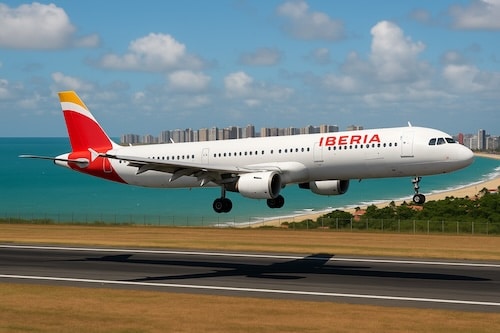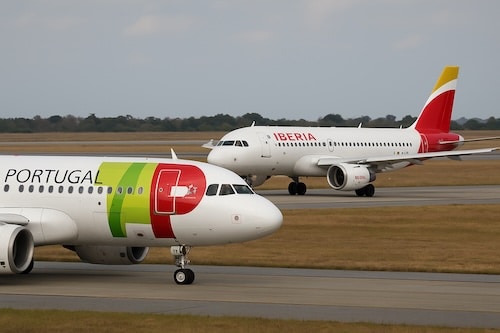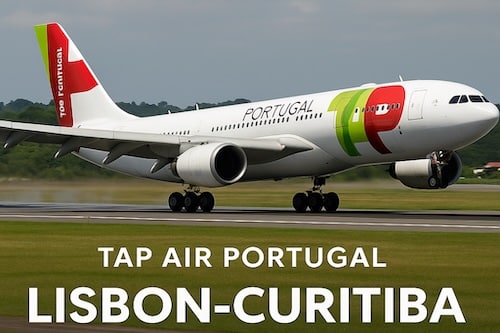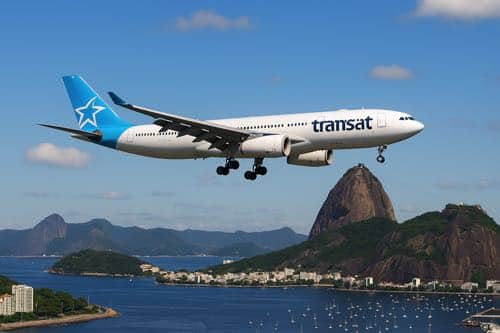
Iberia has announced a major expansion of its Brazil network, targeting a 25% capacity increase in 2026 as the airline deploys new-generation Airbus long-range jets and adds more nonstop routes between Madrid and key Brazilian destinations. The growth reflects Brazil’s strong demand for international travel and the country’s strategic value within Iberia’s long-haul portfolio.
The expansion follows a remarkable 27% capacity increase in 2025, confirming Iberia’s long-term commitment to the Brazilian market.
New Airbus Aircraft Drive Iberia’s Brazil Growth
Iberia’s upcoming capacity boost is being made possible by its growing fleet of Airbus A321XLR aircraft. These new long-range narrow-body jets allow the airline to launch routes that were once only viable with wide-body aircraft, providing fuel savings and greater flexibility.
The A321XLR will support Iberia in opening new point-to-point routes while increasing frequencies on existing services — a key factor behind the 25% planned growth.
New Routes: Recife and Fortaleza Join Iberia’s Network
In late 2025 and early 2026, Iberia will launch new nonstop service from Madrid to two major cities in Brazil’s Northeast:
-
Madrid–Recife: Service begins December 13, 2025
-
Madrid–Fortaleza: Service begins January 19, 2026
Both routes will operate three times per week and are expected to stimulate leisure and inbound tourism, as both cities are top beach destinations for Europeans and excellent gateways to Brazil’s Northeast.
Increased Rio de Janeiro Service
Iberia will also increase frequencies to Rio de Janeiro, moving from five weekly flights to daily service. Combined with its two daily flights to São Paulo, Iberia will operate its strongest-ever schedule to Brazil.
This expanded presence strengthens Madrid’s role as a major European hub for travelers flying to and from Brazil.
Why Iberia’s Expansion Matters to Brazil Travelers
1. More Flight Options and Competitive Fares
With more frequencies and new routes, travelers can expect improved connections between Brazil and Europe, as well as potential fare competition against TAP, Air France–KLM, and Lufthansa Group.
2. New Gateways Beyond Rio and São Paulo
Recife and Fortaleza provide excellent beach access and strong domestic connectivity — especially for travelers continuing to Salvador, Natal, Maceió, Jericoacoara, and Fernando de Noronha.
3. Modern, Fuel-Efficient Aircraft
The introduction of the Airbus A321XLR transforms previously unserved city pairs into viable nonstop routes, opening more possibilities for travelers seeking convenience and shorter travel times.
4. Strengthening Brazil’s Tourism and Business Links
More European flights mean increased tourism, stronger business ties, and wider international exposure for Brazil’s booming Northeast region.
Brazil Aviation Outlook: A Competitive 2026 Ahead
Iberia’s aggressive expansion reflects the strong performance of Brazil’s international market, which continues to grow at double-digit rates. With additional capacity arriving from European airlines such as TAP Air Portugal, Air France, KLM, and now Iberia, 2026 is shaping up to be one of the most competitive years for Brazil–Europe travel.
For travelers, this means better schedules, more destinations, and improved opportunities for premium and promotional fares.



